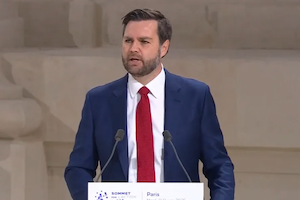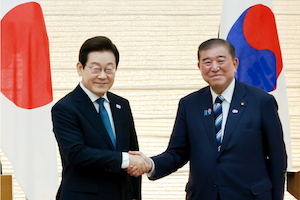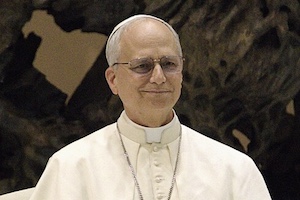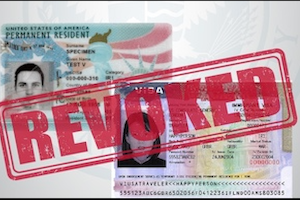World
Jeju Island Releases Guidelines for Foreign Tourists — Violators to Face Fines

Jeju Island, one of South Korea’s most popular tourist destinations, has seen a steady rise in the number of foreign visitors. While this has brought economic benefits, it has also led to issues such as littering, traffic violations, and environmental damage. To protect the island’s ecology and preserve the quality of life for residents, the Jeju Special Self-Governing Province officially announced the **"Code of Conduct for Foreign Tourists"** on the 27th. Violators may face fines, which could reach several million Korean won depending on the offense.
The guidelines focus on three main areas:
1. **Environmental Protection**: Littering or damaging natural resources is strictly prohibited. Offenders can be fined up to **1 million won**.
2. **Traffic Regulations**: Visitors renting cars must have a valid international driver’s license and comply with Korean traffic laws. Driving under the influence or without a valid license will result in heavy penalties.
3. **Cultural Respect**: Tourists are reminded to act respectfully when visiting traditional markets, temples, or residential areas. Unauthorized photography or actions that disrupt local life are not allowed.
According to local authorities, Jeju Island has recently attracted a large number of tourists from China, Japan, Taiwan, and Southeast Asia. However, some visitors have damaged protected plant areas, littered cigarette butts, or camped illegally, posing a threat to the environment. The Jeju government emphasized that the new measures are **not meant to discourage tourism**, but rather to ensure the **sustainable development** of the island’s tourism and ecology.
A spokesperson from the Jeju Provincial Police Agency told the media that, in addition to putting up warning signs, **officers will carry multilingual notices during patrols**. Minor violations will be handled with on-the-spot warnings, while more serious offenses will be dealt with immediately. The official noted that issuing warnings for minor infractions is intended to avoid creating tension with foreign tourists and also to reduce the burden on police forces.
After years of disruption caused by the COVID-19 pandemic, Jeju’s pleasant climate has helped fuel a strong rebound in tourism — especially among foreign visitors. The restoration of direct flights, particularly from various cities in China, has made Chinese tourists the largest group of international visitors to the island. Other tourists often arrive via cruise ships or are drawn by the Korean Wave (Hallyu), especially K-pop, sparking broader interest in South Korea and helping total visitor numbers return to pre-pandemic levels.
The **Jeju Tourism Organization** stated that multilingual signs will be installed at airports, ports, and major tourist sites. They also plan to launch a **mobile app** in Chinese, English, and Japanese to help tourists easily access the regulations.
Local residents have expressed broad support for the new regulations, believing that only through strict enforcement can tourism development be balanced with quality of life. Experts also note that this initiative could enhance Jeju’s tourism image and serve as a model for other popular tourist destinations.
- 202 reads
Vance: Russia Makes Major Concession to Trump, Says It Recognizes "Post-War Ukraine’s Territorial Integrity"

Amid a deadlock in the Russia-Ukraine peace process, U.S. Vice President J.D. Vance emphasized in an interview that Russia has made “the most significant concession in three and a half years” to President Donald Trump, recognizing Ukraine’s territorial integrity after the war and abandoning its push to install a puppet regime in Kyiv. Vance noted that although fighting on the front lines has yet to cease, Trump has engaged in “very active, very powerful diplomatic efforts” to push both sides toward compromise. He expressed confidence that “the dawn of peace” is gradually emerging under Trump’s mediation.
In an interview with NBC’s Meet the Press, Vance stated that Russia not only acknowledged Ukraine’s sovereignty after the war but also agreed to provide security guarantees to uphold its territorial integrity. This move is seen as a major shift in Russia’s position, especially given its previous insistence on Ukraine’s neutrality and demilitarization. Vance stressed that the U.S. will continue to play an active role, but made clear that “there will be no U.S. troops stationed directly inside Ukraine,” in order to avoid further escalation of the conflict.
Meanwhile, Russian Foreign Minister Sergey Lavrov expressed dissatisfaction with European leaders, accusing them of obstructing the peace process, and admitted that summit agendas were not yet prepared, with no plans for a short-term meeting between the two presidents. At the same time, Ukraine marked the 34th anniversary of its independence, with Canadian Prime Minister Mark Carney visiting Kyiv as a “special guest.” Carney announced that Canada does not rule out sending peacekeepers and pledged over NT$22 billion (approx. US$680 million) in military aid. The contrasting approaches of the U.S. and Canada toward Ukraine’s security guarantees add further complexity to the prospects of future peace negotiations.
- 41 reads
Ukraine Independence Day: Canadian PM Carney Attends Celebration to Show Support

On August 24, Ukraine marked its Independence Day, with Canadian Prime Minister Mark Carney arriving in Kyiv for his first official visit since taking office. Carney expressed Canada’s support for Ukraine’s defense of its sovereignty and took part in the country’s Independence Day celebrations.
As world leaders continue efforts to end the Russia-Ukraine war, Carney not only reiterated Canada’s backing of Ukraine’s sovereignty but also prepared to meet with Ukrainian President Volodymyr Zelenskyy to discuss military aid, joint weapons production, and related issues.
Upon his arrival in Kyiv, Carney posted on social media that on Ukraine’s Independence Day, at such a critical moment in the nation’s history, Canada would deepen its commitment and efforts to help Ukraine achieve a just and lasting peace. He noted that Canada is working with allies in the “Coalition of the Willing” to explore additional land, air, and sea measures to further assist Ukraine in resisting Russia.
Carney and Zelenskyy delivered speeches at Kyiv’s St. Sophia Square, where they announced new details of Canada’s CA$2 billion (US$2 billion) defense assistance package. The funding will support joint production of advanced drones by Canada and Ukraine, as well as the provision of ammunition and armored vehicles, with deliveries set to begin next month. In addition, Canada will provide funding for emergency medical care and shelter facilities.
During the G7 summit in June, Canada pledged US$2 billion in military aid to Ukraine and signed a strategic defense agreement with the European Union to advance joint procurement and production of weapons with Ukraine and other allies. Canada also plans to coordinate with Ukraine on urgent security guarantees.
In his speech, Carney stated: “When peace comes, Canada will be there. Once the killing stops, we will stand with you to foster Ukraine’s peace, security, and prosperity. We must deter and strengthen, ensuring Russia can never again threaten the freedom of Ukraine and Europe.”
- 37 reads
South Korea-Japan Ties Mark 60 Years: Lee Jae-myung Makes Rare August Visit to Tokyo to Promote Shuttle Diplomacy

Japanese Prime Minister Shigeru Ishiba and South Korean President Lee Jae-myung held their first summit on Saturday, the 23rd, at the Prime Minister’s Office in Tokyo, stressing the importance of setting aside past differences in the face of challenges from their mutual ally, the United States.
The two countries agreed to cooperate in areas such as clean energy, artificial intelligence, declining birthrates, population aging, and disaster prevention. Both sides reaffirmed that South Korea and Japan, together with the United States, would work to end North Korea’s nuclear and missile development programs. This marks the first time since the establishment of diplomatic relations in 1965 that a South Korean president has chosen Japan as the first destination for an overseas trip, and the first time since then that a South Korean leader has visited Japan before visiting the United States. Japanese officials noted that this shows Lee’s strong emphasis on strengthening Seoul-Tokyo relations. Historically, disputes over wartime issues have repeatedly hindered South Korea-Japan ties and trilateral coordination with Washington.
“Cooperation between our two countries is more important than ever,” Ishiba said. “Since the president took office, we have shared the same perspective, and I find that very encouraging.” Ishiba currently faces pressure from right-wing rivals within the ruling party to resign following July’s election setback. Lee expressed to Ishiba his hope to promote dialogue and cooperation, including shuttle diplomacy, not only between the two leaders but also through exchanges among government officials of both nations.
According to the Yomiuri Shimbun, no South Korean president has visited Japan in August since President Roh Tae-woo in 1987. August 15 is Korea’s Liberation Day, commemorating Japan’s surrender in World War II and the founding of the South Korean government. Senior Japanese Foreign Ministry officials remarked that the period around Liberation Day has traditionally been a sensitive time in South Korea regarding historical issues, making visits aimed at improving bilateral ties especially difficult.
Saturday’s summit was the first in 17 years, culminating in a joint statement in which both leaders pledged to look toward the future. Tokyo reiterated its “deep remorse and heartfelt apology” for Japan’s harsh colonial rule. Last week, in a speech marking Korea’s liberation from Japanese colonial rule, Lee called on both sides to overcome past grievances while urging Japan to face unresolved issues in order to maintain trust.
Lee and Ishiba jointly affirmed that “in a rapidly changing international environment, unwavering trilateral cooperation among South Korea, the United States, and Japan is vital,” and agreed to foster a positive cycle of stronger cooperation that advances Seoul-Tokyo relations.
Lee will remain in Japan on August 23–24 before heading directly to the United States for a summit with President Donald Trump. This indicates that under Lee Jae-myung’s leadership, inaugurated in June, South Korea has not shifted its stance on cooperation with Japan or trilateral ties with the United States and Japan.
- 71 reads
U.S. and EU reach tariff agreement: comprehensive 15% rate, excluding alcohol.

On the 21st, the United States and the European Union (EU) issued a joint statement revealing details of their discussions in July regarding a trade and investment framework agreement. The U.S. will impose a 15% tariff on most imports from the EU, including pharmaceuticals and semiconductors. Tariffs on automobiles are expected to be lower than the current 27.5% rate. Alcoholic beverages are not yet exempted. As some disagreements remain between the two sides, the EU has expressed hope that the U.S. will make further concessions.
EU Trade Commissioner Maroš Šefčovič stated that the confirmed tariffs will not be applied on top of existing ones and will be retroactively effective from August 1. Additionally, the EU plans to eliminate tariffs on U.S. industrial products and ease import restrictions on American seafood and agricultural products, including nuts, dairy products, fruits and vegetables, soybean oil, pork, and bison meat.
European wine producers expressed disappointment with the outcome of the agreement. A representative from the French Federation of Wine and Spirits Exporters (FEVS) stated that the tariffs would pose a major challenge to the alcohol industry, noting that the U.S. is the largest market for Bordeaux wines, and the tariffs would significantly hinder their market competitiveness. The European Commission emphasized that this trade agreement is only the beginning and that negotiations with the U.S. will continue to further strengthen transatlantic economic ties.
- Read more
- 53 reads
Pope Leo XIV Calls for Global Day of Prayer and Fasting for Peace on August 22

According to media reports, Pope Leo XIV, at the conclusion of a public audience on August 20, expressed concern over the ongoing devastation caused by war in many parts of the world. He issued a special invitation to the faithful to join in a day of prayer and fasting for world peace on August 22, the Feast of the Queenship of Mary.
The report stated that the Pope said: *“I invite all the faithful to dedicate a day of prayer and fasting for all those suffering from the scourge of war, including in the Holy Land, Ukraine, and other conflict zones around the world. Let us implore the Lord to grant the gift of peace and justice to all, and to wipe away the tears of those afflicted by the current armed conflicts.”*
The report also noted that Cardinal Matteo Zuppi, President of the Italian Bishops’ Conference and Archbishop of Bologna, announced that the Conference would heed the Pope’s call and observe prayer and fasting on August 22. The late Pope Francis had similarly called on the faithful to observe a day of prayer and fasting for peace on October 7 last year, marking the anniversary of the Hamas attack on Israel.
- Read more
- 34 reads
Anti-American Speech on Social Media Considered in Residency Applications; Over 6,000 Student Visas Revoked

The U.S. Citizenship and Immigration Services (USCIS) recently announced that when reviewing applicants' eligibility for U.S. residency, it will expand its scrutiny to include whether individuals express "anti-American" views on social media. The agency has been actively denying or revoking visas for those deemed to act against U.S. foreign policy interests. As part of a broader tightening of student visa policies, more than 6,000 international student visas have been revoked since the beginning of 2025.
According to a statement from USCIS, the privilege of living and working in the United States is not a right, but a benefit that should not be extended to those who promote anti-American ideologies. Therefore, social media screening has been added to the vetting process, with a broader scope to detect potential support for terrorism or threats to national security. While "support for terrorism" is not specifically defined, the criteria now include whether the applicant holds anti-American views or promotes **anti-Semitic ideologies**.
International students have also become key targets in the crackdown on immigration. Reports indicate that over 6,000 international student visas have been revoked so far in 2025, primarily due to overstaying, legal violations, or suspected support of terrorism. Among these, approximately 4,000 students lost their visas due to legal offenses such as assault, drunk driving, robbery, arson, domestic violence, human trafficking, and child endangerment. Around 300 students were flagged for participating in pro-Palestinian protests or raising funds for Hamas, actions considered indicative of anti-Semitic tendencies or support for terrorism.
The Trump administration has emphasized that visa revocations help prevent terrorism supporters from entering the U.S. under the guise of being students, thereby safeguarding national security. Under the administration’s strict visa policies, a total of about 40,000 visas have been revoked in 2025 alone, with student visas making up a large portion. In July, fewer than 79,000 student visa holders entered the U.S., marking a 28% decline.
- Read more
- 34 reads
Anti-American Speech on Social Media Considered in Residency Applications; Over 6,000 Student Visas Revoked
The U.S. Citizenship and Immigration Services (USCIS) recently announced that when reviewing applicants' eligibility for U.S. residency, it will expand its scrutiny to include whether individuals express "anti-American" views on social media. The agency has been actively denying or revoking visas for those deemed to act against U.S. foreign policy interests. As part of a broader tightening of student visa policies, more than 6,000 international student visas have been revoked since the beginning of 2025.
According to a statement from USCIS, the privilege of living and working in the United States is not a right, but a benefit that should not be extended to those who promote anti-American ideologies. Therefore, social media screening has been added to the vetting process, with a broader scope to detect potential support for terrorism or threats to national security. While "support for terrorism" is not specifically defined, the criteria now include whether the applicant holds anti-American views or promotes **anti-Semitic ideologies**.
International students have also become key targets in the crackdown on immigration. Reports indicate that over 6,000 international student visas have been revoked so far in 2025, primarily due to overstaying, legal violations, or suspected support of terrorism. Among these, approximately 4,000 students lost their visas due to legal offenses such as assault, drunk driving, robbery, arson, domestic violence, human trafficking, and child endangerment. Around 300 students were flagged for participating in pro-Palestinian protests or raising funds for Hamas, actions considered indicative of anti-Semitic tendencies or support for terrorism.
The Trump administration has emphasized that visa revocations help prevent terrorism supporters from entering the U.S. under the guise of being students, thereby safeguarding national security. Under the administration’s strict visa policies, a total of about 40,000 visas have been revoked in 2025 alone, with student visas making up a large portion. In July, fewer than 79,000 student visa holders entered the U.S., marking a 28% decline.
- Read more
- 37 reads
Air Canada Strike Paralyzes Flights, Crisis Resolved After Government Intervention

Air Canada recently experienced a massive employee strike following a breakdown in negotiations between the union and company management. The strike severely disrupted flights at major airports across the country, throwing travel plans of tens of thousands of passengers into chaos. After several tense days, the Canadian federal government officially intervened late last night, facilitating a preliminary agreement between the two parties. This morning, Air Canada announced the full resumption of normal flight operations, temporarily resolving the crisis.
On August 19, Air Canada and the Canadian Union of Public Employees (CUPE), which represents over 10,000 flight attendants, reached a preliminary agreement, ending the strike that began last Saturday. With the help of the federal government's chief mediator, both sides engaged in nine hours of negotiations and reached a deal in the early hours of the 19th, bringing an end to a labor dispute that had affected hundreds of thousands of passengers. Air Canada stated that while flights would begin to gradually resume that night, full recovery would take 7 to 10 days. Some passengers whose flights were canceled during the strike still face challenges rebooking.
The conflict stemmed from long-standing disputes between Air Canada's labor union and management over issues such as work hours, wage adjustments, and labor protections. After negotiations collapsed, the union launched a strike over the weekend involving ground staff, maintenance crews, and customer service personnel. The large-scale work stoppage caused massive delays and cancellations. At Toronto Pearson Airport alone, over 40% of flights were affected. Many travelers were stranded at airports, and some international passengers missed connecting flights, sparking widespread frustration.
Amid growing public pressure and mounting passenger dissatisfaction, both the Ministry of Transport and the Ministry of Labour called on the two sides to return to the negotiating table, stressing that "maintaining stable air transportation is critical to the national economy and public welfare." Coordinated by the Prime Minister’s Office, government mediators worked through the night to facilitate talks. After several closed-door sessions, a preliminary consensus was reached. The agreement includes gradual improvements to employee work schedules, moderate wage increases, and enhanced guarantees for vacation time and workplace safety. The union stated that while some details remain to be negotiated, they are willing to suspend the strike in consideration of passenger rights.
In a statement released this morning, Air Canada thanked the government for its active involvement and pledged to restore flight operations as quickly as possible. The airline also promised to assist affected passengers with rebooking and compensation. Additionally, the company issued a public apology and said it would review its internal labor communication mechanisms to prevent future disruptions. Union leaders emphasized that the strike was a last resort and expressed hope that the company would fulfill its commitments with sincerity.
While some affected passengers may still need several days to complete their rebooking, most flights are gradually returning to normal. The Canadian Ministry of Transport has advised travelers to stay updated with airline announcements and arrive at airports early to avoid delays due to potential congestion at security and check-in counters.
Analysts noted that the Air Canada strike highlights long-standing tensions in labor relations within the aviation industry and underscores the staffing pressures brought on by the rapid post-pandemic recovery. Although government intervention has temporarily calmed the situation, whether the agreements will be fully implemented remains to be seen and will test both parties' sincerity. Many observers believe that unless fundamental differences are resolved, Air Canada could face similar labor disputes in the future.
While this crisis has come to a close, bringing relief to travelers nationwide, various sectors of society are calling on the government and airlines to proactively develop long-term strategies to ensure transportation stability and safeguard the public's basic right to travel.
- Read more
- 68 reads
Trump to Meet Zelensky, White House Confirms for Early Morning of 19th Taiwan Time

The White House announced that U.S. President Donald Trump will meet with Ukrainian President Volodymyr Zelensky in the Oval Office at 1:15 p.m. Eastern Time on August 18 (1:15 a.m. Taiwan time on August 19). Later that day, at 3:00 p.m. (3:00 a.m. Taiwan time), Trump will host a meeting in the East Room with multiple European leaders. The talks are being regarded as a potential diplomatic turning point in the Russia-Ukraine war. Zelensky arrived in Washington late on the 17th and wrote on Telegram: “I thank the U.S. President for his invitation. We all hope for a swift and reliable end to this war. Russia must put an end to the war it started.” He stressed the hope of working together with the U.S. and European allies to compel Russia to end the conflict and achieve real peace.
Leaders of the United Kingdom, Germany, France, Italy, and Finland, along with NATO Secretary General Mark Rutte, will accompany Zelensky at the White House meeting to demonstrate steadfast support for Ukraine. European leaders have voiced concerns that Trump might reprise the tense clash he had with Zelensky at the White House in February, underscoring that any peace deal must include both Ukraine and the EU. EU foreign policy representative Kaja Kallas stated: “This war is not only against Ukraine, but a challenge to the freedom of all Europe.”
Following his meeting with Russian President Vladimir Putin in Alaska on August 15, Trump publicly said that the war could end if Ukraine agreed to relinquish Crimea and pledged never to join NATO. His remarks triggered strong backlash across Europe, while Zelensky firmly rejected the notion of “land for peace,” stressing that Ukraine’s legally recognized borders are non-negotiable. Although Trump has styled himself as a mediator pushing for a trilateral summit, Moscow has said conditions are not yet ripe, while Zelensky has insisted that any agreement must guarantee Ukraine’s security and sovereignty.
- 42 reads
Human Rights
Fostering a More Humane World: The 28th Eurasian Economic Summi

Conscience, Hope, and Action: Keys to Global Peace and Sustainability

Ringing FOWPAL’s Peace Bell for the World:Nobel Peace Prize Laureates’ Visions and Actions

Protecting the World’s Cultural Diversity for a Sustainable Future

Puppet Show I International Friendship Day 2020

